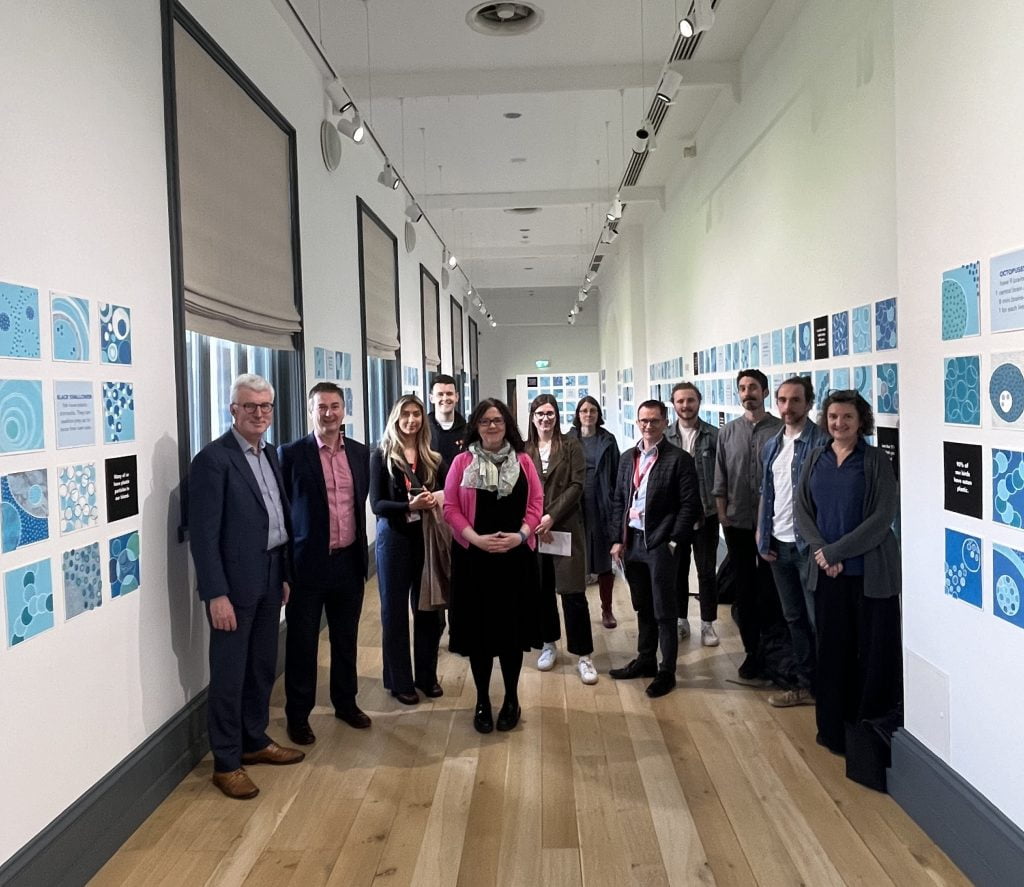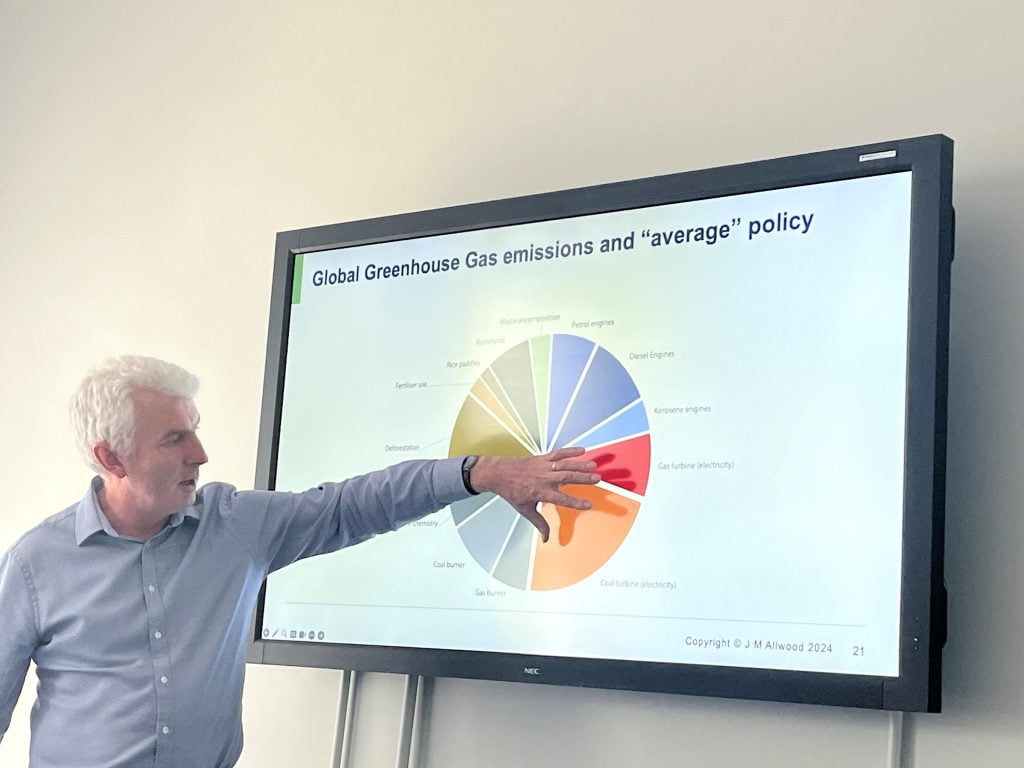On 23rd April, 2024 the RIED teamed up with the Centre for Sustainability, Equality and Climate Action (SECA) (Centre for Sustainability, Equality and Climate Action (SECA) | Queen’s University Belfast (qub.ac.uk) to host Professor Julian Allwood, Director of the UKFIRES programme.
Julian is Professor of Engineering and the Environment at the University of Cambridge and directs the Use Less Group. Uniquely, his research aims to articulate a pathway to zero emissions based on technologies that already exist at scale. This directs attention to eliminating process emissions and efficient electrification. A particular focus of his research is to identify opportunities for business growth compatible with real zero emissions. In 2022 this has led to founding three spin-out companies, including the worlds’ first zero-emissions process for producing Portland cement, with a pipeline of other opportunities in development.
The day had three connected events. In the morning we held a masterclass session where Julian brought some of the latest thoughts from UKFIRES and we discussed these with the RIED team, exploring possibilities for integrating learning from the resources challenges posed into the RIED design framework. There is exciting potential here and RIED team member, Julian Francis is already off and running with ideas on designing waste out of aircraft structures. This is a great example of two EPSRC critical mass investments (RIED and UKFIRES) collaborating to explore how we can get even more from our collective efforts.
The main event of the day was Julian’s public talk on “Our Precious Resources” delivered in the SECA rooms in historic University Square. The attendees heard how reducing demand on material is a critical element in our path to net zero. Julian explained how, to date, most political efforts around climate mitigation have focused on novel supply-side technologies, in particular carbon capture and storage, hydrogen and negative emissions technologies. However, they are deploying so slowly, that we can now say with near certainty that they won’t have meaningful scale by 2050. He explained how the opportunities for profitable demand-side innovation that can be deployed rapidly. The talk will start with two examples of spin-out companies created in my group: DeepForm Ltd which delivers drop-in-tooling to reduce the scrap made by the automotive industry by 75%, and Cambridge Electric Cement Ltd. which offers the world’s first true zero-emissions Portland Cement. In both cases, they identified the opportunity for the innovation by pragmatic top-down analysis of options at scale, which allowed them to focus their creativity. He gave more clarity to the under-explored opportunities for demand-side innovations that can contribute significantly to climate mitigation within the time left for safe action. A captivating and informative talk!
The day closed with a panel discussion on transdisciplinary approaches for sustainability. Here Julian was joined by the Director of SECA, Amanda Slevin, engineer Beatrice Smyth and artist Ingrid Hess a visiting scholar at QUB from the University of Massachusetts Lowell in the USA. The panel shared their diverse views on the issue and we then had a very lively and engaged open discussion with the audience, finishing with a positive statement from each panel member encouraging us to contribute and act to address climate change. We’ll leave with the shared value and advice from the panel…”Consume less!”.
A huge thank you to Dr Amanda Slevin, Director of SECA and the SECA team for the help in hosting the events. Thanks to all who engaged with us, and we look forward to doing much more and engaging RIED on challenges that matter to us all!
You can see the fantastic exhibition “Full of Wonder or Full of Plastic? You Decide.” By Ingrid Hess at the Naughton Gallery in Queen’s until Sunday 12th May 2024.


